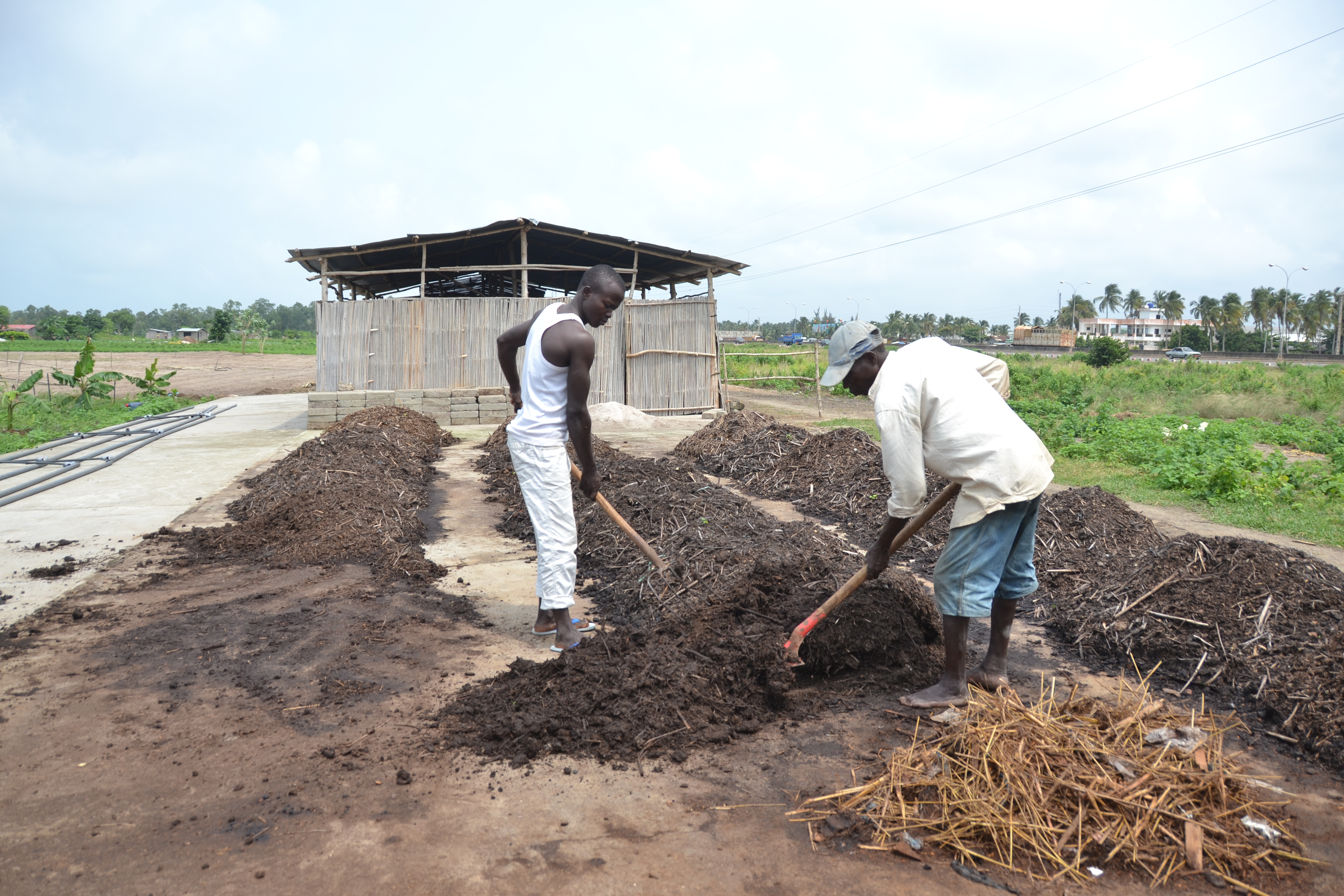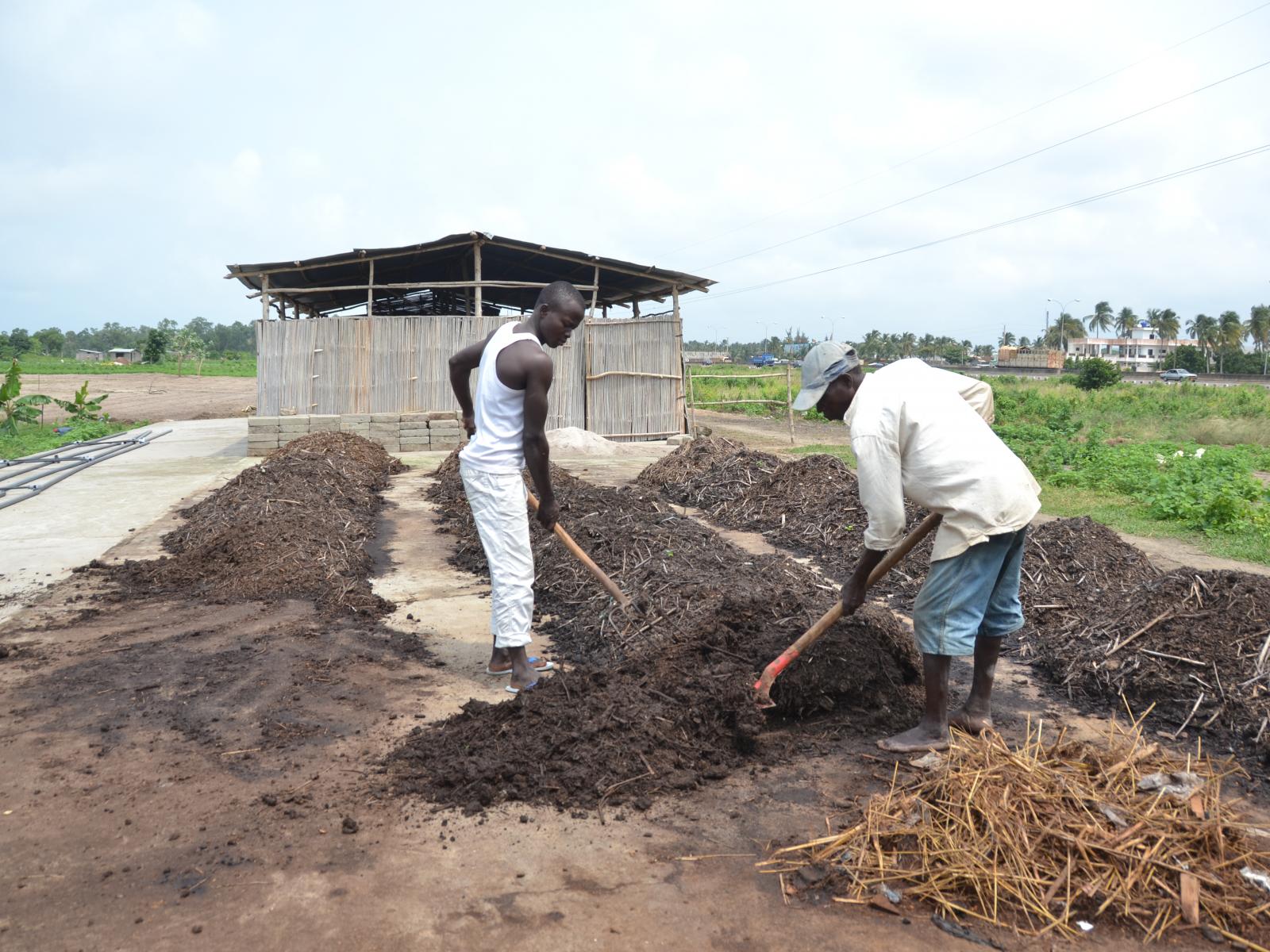An Overview Of Our Solution
In order to help solve the problem of impoverishment of agricultural land and to help peri-urban farmers to supply healthy vegetables, the NGO HORTITECH DEVELOPPEMENT manufactures and makes biological compost available to peri-urban market gardeners in southern Benin. This compost, made from farm waste and household and market waste, now makes it possible to supply certified organic vegetables to the populations of the towns of Cotonou, Calavi and Cocotomè and surrounding areas.
Who is this solution impacting?
Community Type
Suburban
Rural
Additional Information
- Population Impacted:
- Continent: Africa
General Information
Organization type
Sin fines de lucro/No Gubernamental
Ecosystem (select all that apply)
Grasslands
Population impacted
1,000,000 persons
Challenge
Size of agricultural area
40 ha
Production quantity
21 tonnes/month
People employed
45 persons
Solution
Describe your solution
1- We collect or buy biodegradable waste such as cow dung or other animal waste, sawdust, ash, garbage from markets and we compost it with a quick method of composting.
2- We train peri-urban farmers on the use of our compost..
Implementation
Describe your implementation
- In year 2016, we produced and sold 144 tonnes of compost.
- Today more than 150 farmers (Members of AMAP Cooperative) already use our compost to produce and market certified organic SPG vegetables in the cities of Cotonou, Calavi, Cocotomè and surroundings.
- Those famers market more than 250 tonnes of fresh and certified vegetables.
External connections
- We collect and process waste from market, farms, and household wastes
- We receive training from the National Agricultural Research Institute of Benin (INRAB / PCM).
- We have our compost analyzed at the Laboratory of soil and water sciences (LSSE) based in Agonkanmin in calavi.
- Benin and FUPRO BENIN provide technical and methodological support on the appropriation of the -BIO SPG certification process.
- The Belgian Technical Cooperation supports the certified organic SPG farmers who use our compost and sell their organic products on the local market of southern Benin.
Results
What is the environmental or ecological challenge you are targeting with your solution?
- Better management of soil fertility
Solution approaches for organic fertilization
- promotion of best agro- ecological practices
Contribution to healthy food supplying.
Describe the context in which you are operating
The abundant and uncontrolled use of chemical fertilizers and pesticides in market gardening production threatens the balance of the ecosystem, soil fertilizers and causes health problems for farmers and consumers.
Face this concern, we make quick waste composting to provide fairly balanced organic fertilizers used in organic farming.
How did you impact natural resource use and greenhouse gas emissions?
By promoting efficient and sustainable compost use in urban agriculture, we help farmer avoid chemical fertilizers use and reduce chemical pesticides use. This practice contributes to preserve nature. We produce and supply compost to farmers. They buy it, use it and maket successfully their organics certified vegetables.
Language(s)
French, Fon, Fulfulde, Yoruba
Social/Community
Farmers, vegetables sellers and consumers profit from our innovation.
Water
No more pollution in agriculture Best water management in agriculture because the soils that receive compost have a high water retention capacity.
Food Security/Nutrition
Our farmer supply healthy foods (vegetables)
Economic/Sustainable Development
Our Organic certified vegetables sector employs about 200 persons. - We sold compost for 183 272 dollars in 2016. It is more 180 000 dollars of turn over for our farmers in 2016.
Climate
Our initiative in a solution approach for climate changes adaptation
Sustainability
Our composting activities are not subsidized (except the training sessions activities)
- We sold compost for 183 272 dollars in 2016 to the organic farmers.
- The farmers marketed organic vegetables for 180 000 dollars in 2016.
They got a profit margin of 35% or the equivalent of 63000 dollars.
Return on investment
We are satisfied by our result so far.
The composting activities are carried out by own financing but which is insufficient to meet our ambitions
Entrant Banner Image

Replication and Scale
How could we successfully replicate this solution elsewhere?
To install a composting unit with a capacity of 100 tons per month, it is necessary to plan to invest 18 to 22 million FCFA equivalent to about 40 000 dollars
This solution can be replicate anywhere else. Replication requires Skills in organic production techniques, composting, local seeds growing, participatory certification and marketing specialists. It requires also other organic input suppliers.
ALL involved stakeholders (farmers, extension service or local NGO technicians and consumers will have been trained on varied themes.
